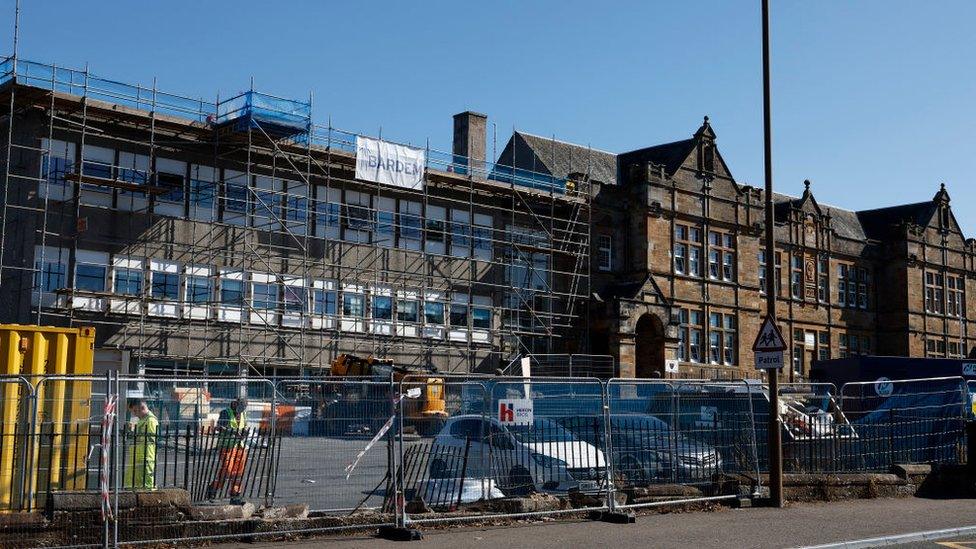Raac found in schools in 16 Scottish local council areas
- Published

Structural inspections have been taking place at schools across the country
A total of 16 local authorities have found potentially dangerous concrete in their schools, the Scottish government has confirmed., external
Structural inspections have been carried out across the country to see where Reinforced Autoclaved Aerated Concrete (Raac) is present.
Humza Yousaf had vowed that a list of the relevant local councils would be published by Friday.
Safety mitigations must now be carried out as a priority, the government said.
Mr Yousaf told MSPs during First Minister's Questions on Wednesday that the number of schools known to contain Raac had increased to 40, with fire stations and NHS buildings also affected.
"Each school, given the Institute of Civil Engineers guidance, will then choose to take the appropriate mitigation," he said.
The schools currently impacted are in the following council areas:
Aberdeen City
Aberdeenshire
Argyll and Bute
City of Edinburgh
Dumfries and Galloway
Dundee City
East Ayrshire
East Lothian
Glasgow City
Highland
Inverclyde
Moray
North Ayrshire
North Lanarkshire
Perth and Kinross
West Lothian
Ten universities in Scotland have also closed or part-closed some buildings.
Meanwhile, an NHS Scotland review has identified 254 of its buildings that "have two or more characteristics which are consistent with the presence of Raac".
Mr Yousaf said that out of 40 of those buildings that have been more closely inspected so far, nine have been found to contain Raac.
Education Secretary Jenny Gilruth said the Scottish government had been "actively engaging with local authority partners, who have statutory responsibility for school buildings in Scotland, for some time.".
She added: "Local authorities were asked to publish by today the data relating to impacted schools in their area given the seriousness of this issue and to ensure this data is freely available.
"I hope this provides reassurance to parents, carers, staff and pupils who may be concerned about the presence of Raac in their learning facilities.
"I also expect the local authorities still to publish to do so as a matter of urgency."